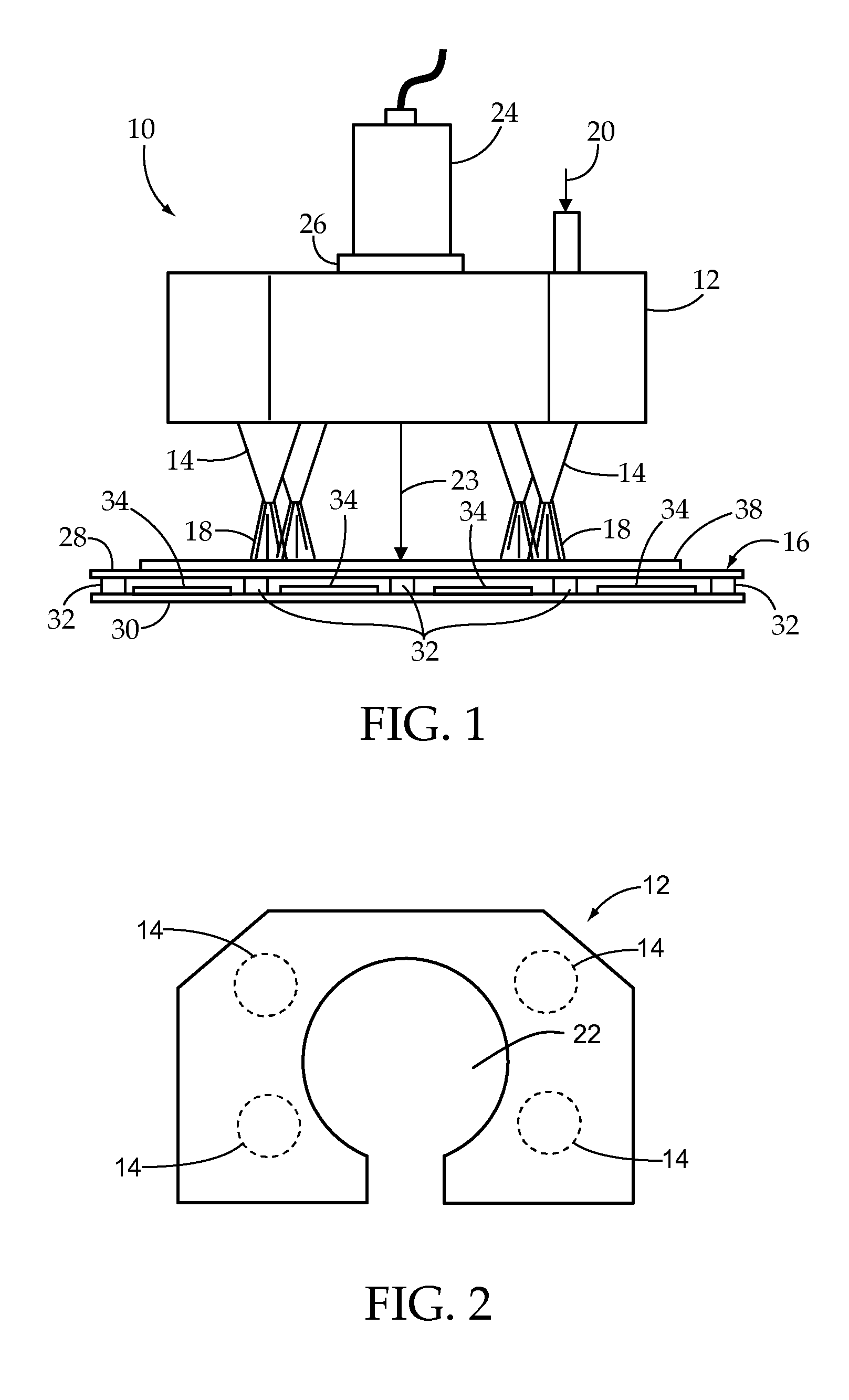Method and apparatus for sealing a glass package
a technology of glass package and glass shell, which is applied in the field of glass package sealing methods and apparatuses, can solve the problems of insufficient weight of the substrate in and of itself to facilitate a good seal, great effort is made to provide a hermetic package, and the leakage rate is unacceptable for a long device life. to achieve the effect of improving the seal quality of the glass packag
- Summary
- Abstract
- Description
- Claims
- Application Information
AI Technical Summary
Benefits of technology
Problems solved by technology
Method used
Image
Examples
examples
[0048]In one experiment, four Exair model # 1009 air nozzles were disposed in a radially symmetric pattern around a laser that was itself disposed in an aluminum housing and mounted such that the direction of airflow was perpendicular to the upper glass substrate surface of a glass assembly as previously described. The housing included four press-fit air hose connectors for ½″ OD hose with which to supply the nozzles with compressed air. The hose was connected to a compressed air feed with a regulator to adjust the pressure and fine tune it to the desired amount. The air jet assembly (housing and nozzles) was slipped over the laser collet and screwed into place. The sealing height (from the surface of the glass to the bottom edge of the laser) was approximately 26 mm, with the tips of the nozzles positioned about 10 mm below the laser (about 16 mm from the glass).
[0049]The air nozzles were adjustable to different flow outputs, and thus different forces. In this experiment they were ...
PUM
| Property | Measurement | Unit |
|---|---|---|
| temperatures | aaaaa | aaaaa |
| thickness | aaaaa | aaaaa |
| thickness | aaaaa | aaaaa |
Abstract
Description
Claims
Application Information
 Login to View More
Login to View More - R&D
- Intellectual Property
- Life Sciences
- Materials
- Tech Scout
- Unparalleled Data Quality
- Higher Quality Content
- 60% Fewer Hallucinations
Browse by: Latest US Patents, China's latest patents, Technical Efficacy Thesaurus, Application Domain, Technology Topic, Popular Technical Reports.
© 2025 PatSnap. All rights reserved.Legal|Privacy policy|Modern Slavery Act Transparency Statement|Sitemap|About US| Contact US: help@patsnap.com



